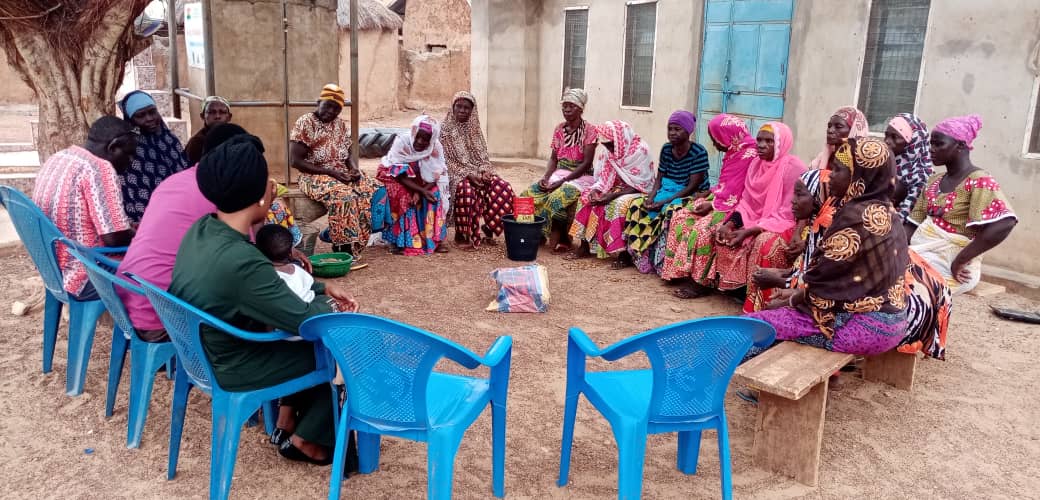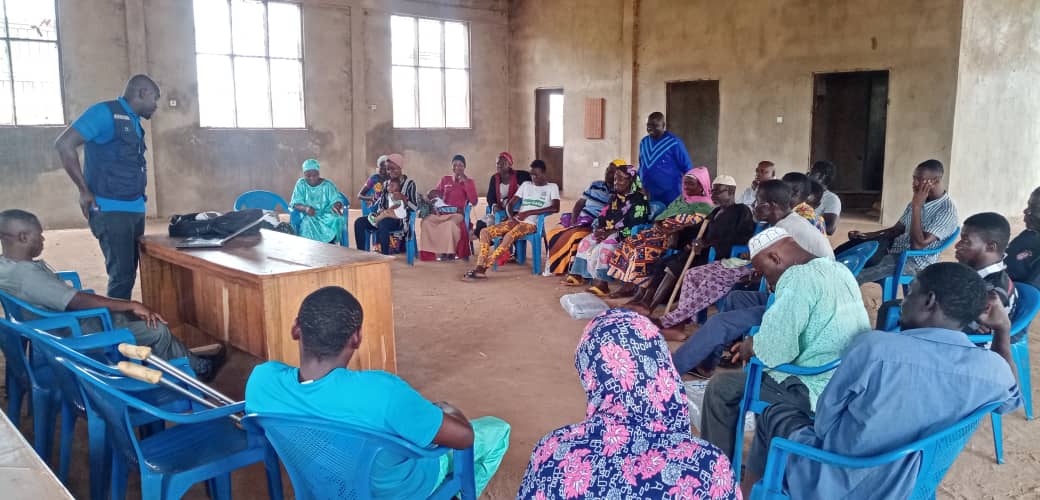Commissioning of a Constructed Six-Unit Classroom Block with Auxiliary Facilities
On July 10, 2024, CIWED Ghana commissioned a newly constructed six-unit classroom block for Kpatiya and its surrounding communities in the Central Gonja District of the Savannah Region. This project, which began in November 2022 and concluded in December 2023, was funded by the Embassy of Japan in Ghana. CIWED Ghana’s vision was to create […]
Read More » »CIWED Ghana Holds Community Outreach to Sensitize Zoonayili Community on the Importance of Child Immunization
On April 29, 2024, CIWED Ghana organized an immunization campaign and educational outreach in the Zoonayili community to emphasize the importance of immunizing children. The topics covered during the outreach included: The outreach officer Mohammed Ziblim (MZ) observed that caregivers often stop bringing their children for immunization after the initial doses, particularly the 14-week immunization. […]
Read More » »CIWED GHANA HOLD A CAPACITY BUILD ING AND RESOURCING OF COMMUNITY HEALTH VOLUNTEERS IN IMMUNIZATION SERVICES
On April 18, 2024, CIWED Ghana hosted an orientation for community health volunteers focused on GAVI PSR 2 immunization services. The aim was clear: to empower volunteers in mobilizing communities and utilizing community registers to gather data on caregivers and children. Their mission? To ensure caregivers and children receive immunization services and to assist CIWED […]
Read More » »CIWED GHANA CARRIED OUT A COMMUNITY ENTRY TO KICK START THE IMPLEMENTATION OF GAVI PSR 2 PROJECT IN NANTON DISTRICT
On 26th March, 2024, CIWED Ghana initiated the execution of the GAVI-Program Support Rationale (PSR) for CSOs Cash Based Support Project (Year 2). Commencing with a community entry procedure, the project engaged in dialogue with the health directorate to fortify collaborative efforts and strategically identify target communities for project intervention. The community entry process was […]
Read More » »
Hold refresher community entries in 5 communities in Nantong districts on the new phase of the project
A refresher community entry in the five selected communities was held on the 29th of March, 2023 with the help of two focal persons in each of the communities. This entry was done in two days by the gender officer and her team in which they visited members in groups in their various communities. The […]
Read More » »
CIWED GHANA holds a district level dissemination of results and action planning
As part of leading community advocacy work, CIWED GH commerce a meeting to disseminate results on level of inclusion of PWDs on political activities. The was held yesterday as a result of the evidence gathered/data collected on the level of inclusion of persons living with disability in political arena. Results gathered indicates that, PWD have […]
Read More » »Open Society Initiative for West Africa (OSIWA)
CIWED is currently in partnership with Open Society Initiative for West Africa (OSIWA) to implement a gender transformative initiative project on Women Voice and Leadership to address a gender in equality and sexual and gender based violence with the aims of building the capacity of women, young girls and boys with a school going age […]
Read More » »Management Sciences for Health (MSH)
CIWED is again implementing a COVID-19 Rapid Response and Recovery Small Grants Mechanism, to Support coordinated civil society advocacy for women’s, children’s and adolescents’ health (WCAH) with funding support from World Health Organization through Management Sciences for Health Inc. (MSH) to contribute to advocacy and accountability for the continuation of quality, lifesaving health and nutrition […]
Read More » »Women Voice and Leadership Project
CIWED is currently in partnership with Plan International through Plan International Ghana, implementing a multi country grant from Global Affairs Canada (Canada Federal Identity Program), on Women Voice and Leadership with the aims of empowering women and young girls to claim their rights to decision-making and sustainable livelihood through capacity building processes to influence responsible […]
Read More » »Promoting Community Based Enhanced Systems Management Preventing Contacting COVID – 19 (ProBESPCoD)
CIWED is currently in partnership with Difäm through Alliance for Future Generations – AFG/WUZDA Ghana to implement a COVID 19 Project which aimed at developing actions to mitigate the progressive spread of CVID 19 disease and improving sanitation in Wovogu and Zion Communities. The following are the achievements so far since its inception in August: – About 238 communities members […]
Read More » »